
Passionate about getting God's message concerning Afrika and the end…
Read Next
REBEKAH DAWN: GOSPEL SINGER AND MUSICIAN
My name is Rebekah Dawn Gituthu, I am American by birth, but Kenyan by heart as I like to say. My grandparents came to Kenya many years ago as missionaries. My dad met my mom in Kenya when she came out on a mission’s trip to serve with my dad’s family. They got married very young and went back to the States for Bible College, then came back and have been living in Nairobi since. My dad was a pilot. He would fly to the islands off the coast of Kenya to a lot of the Muslim islands, Lamu, Pate, those islands and would reach out and just share the gospel. After some time, he just started feeling the frustration of the dependency on missionaries and people coming from the outside in at that time, which was in the early 80s. And while they were so grateful for the missionaries, they themselves were missionaries also, they just felt that burden of “where are the Kenyans? Those that would go out to the rest of the world and you leading churches and just standing at the gates of the city” So in 1987 they planted Nairobi Lighthouse Church.
I was born in the States, but I have been in Kenya since I was an infant and grown up and lived here. I attended Rosslyn Academy for a few years of my primary education… the school we were going to was in the American system, all of the kids in the church were on the British system, so when we would be on holiday they would be in school. So my parents just saw, down the road we wouldn’t be able to establish many friendships, or really live life here, because of how it was at that time. So they pulled us out of the school, homeschooled us so that we could really be involved in our youth group. That’s how I grew up, just being super connected to church life and loving it… that’s where I learned how to speak Swahili because I hated missing out on the jokes. When I graduated high school, I was 16 and I didn’t really have a ‘what I want to do with my life’ at that point. My desire from an early age was to get married and have babies, but since I was not married at the time and needed to do something I went to Hillsong College in Australia where I was a vocal major. My parents, did not want impose their own calling of being in Kenya as missionaries. They wanted us to make our own choices of what God wanted us to do, they sent us all out because Kenya for them was their calling and their choice, but they wanted to make sure we’re following what God has called us to do. I did go to the States for my senior year in school, came back, went to Australia but by that time I was very, very sure Kenya was where I needed to be as well. So I came back home I joined staff at Nairobi Lighthouse Church in 2004/5. I have been serving ever since then, writing songs.
A lot of people know me for “Kutembea Nawe”. That was kind of the song that exposed me past the four walls of our church and so many people would ask me, ‘how do you feel about the sudden success?’ What many people don’t know is before “Kutembea Nawe”, I had produced several albums for our church and written a lot of songs, so the exposure of that song was an unexpected blessing, but I’ve just been here doing my thing all of these many years and still doing my thing. I met my husband in 2013 and got married in 2015, almost right before new years’ day! I am a wife and a home maker and the creative director at Nairobi Lighthouse Church, overseeing all the creative teams. I love to cook but also, I love to eat even more. No children yet but we have three dogs that I love … probably a little bit too much!!
What’s it like living in Kenya?
I don’t have much to compare it to other than the two years I lived out in the States and in Australia, so I would just say it’s home. I go to the States and I feel awkward and out of place like I’m really a missionary!! Haha … I don’t feel like that in Nairobi. In fact, growing up we had very few Wazungu (Caucasians) in our church. Sometimes it was just my family, so all of my friends were Kenyan, so I think I just started thinking I’m also Kenyan! If I’d go into a room and Kenyans are maybe on one side and maybe internationals are on the other side, I’d immediately gravitate toward the Kenyans because I’d feel like I fit in here.
How many years have you been in Kenya?
Well I’m turning 35 this year so 33 years.
Please share a little about your music life being a pianist and producer, singer, song writer, church creative director who’s married to a musician and how it all comes together in God.
Both of my parents are musical. All my siblings and I were all forced to take music lessons as children. We had to do it for a certain amount of time and then after that, if you wanted to quit you could quit. I think I was 5 or 6 when I started actual lessons and I was trained in classical piano and I loved it! I was the one kid in our family who didn’t quit. I took theory and classical piano lessons for three or four years as a child, and when we started homeschooling my mom, picked up teaching me. She actually was the pianist in our church, as the original praise and worship team of NLC, together with my dad, for many years. She was the one who taught me how to play chords and just figuring out church music and hymns.
When I was 14, I joined the main church team as a backing vocalist (which is hands-down my favorite thing to do in music). But every now and then, I’d play piano in church and backup my mom and then slowly after a few years I would solo a song here and there. To be honest, I don’t think I’m naturally a good musician at all! I am partially deaf and was very tone deaf a lot of my childhood. I just loved music and wanted to be good at it! When I was in Australia, I was part of the choir and took voice lessons.
As a side note, my parents are the senior pastors of our church. So one of the things they have been really careful about is to make sure that as their kids, we were not given any platform, privilege or opportunity just because we’re the pastors’ kids. If anything, we have to work double hard to get what we’re given just to earn the trust of the people we’re leading in the team or of the church itself.
When I returned home, I really came back with this big ego (I mean, I had sung BVs for Darlene Zschech – I really thought I was a big deal!) When I was offered a job on the staff at our church, I was actually offered an administrational job to do. My job for years was to key in the data from the small groups every week. So at the beginning, I had false humility, but when this job lasted for 4-5 years, I was like “y’all people … I’m the anointed voice for Africa, can we hurry and put me in my place”. But it was such a good season ‘cause it really got me thinking about the difference between whether I looking for a platform or I was looking to serve.
More about Rebekah
As part of her role as Creative Director at the church, Rebekah set up a production studio where she produces the music for the church. Before that, she worked with Kijiji Records for about a year and also did several projects at Gideon Kimanzi’s studio. “I just love the process of studio,” she says, “I love taking an idea from your heart and then hearing it. That’s cool to me ‘cause I can actually hear what was in my heart to begin with.”
Meeting Allan Sucre (Her Husband)
Rebekah Dawn first met her husband-to-be Allan in 2013 and they were really great friends. She says, “Actually it’s funny because I had always told the Lord … please give me a businessman … I never had a desire to marry a musician or anyone even remotely involved with what I am doing, because I always thought it’s going to be competition and it will be exhausting. You know, we’d be talking about the same thing all the time. You know, I always thought it’d be more fun to have someone who has a totally different story at the end of the day, and not coming home to say, ‘Oh I did exactly what you did’.”
“Allan was a total surprise to me! I actually knew of him through his photography, and then I’d heard of this bass player “Allan Sucre”, but when we met I just liked him! He’s just a breath of fresh air. His humility and normalness was a very welcome surprise to me. I couldn’t help it – I just fell in love with him, even though he was a musician. Actually the first time we hung out was in the studio and, yeah, I was just very impressed with his skill, his excellence, but more than that, it was never Allan’s music that attracted me – it was him; his heart and his personality. We literally work together now!” She adds that Allan has helped take their band to a level they would never have gotten to without him.
Rebekah says she definitely met her husband much later in life than she thought she would, having experienced heart break and various challenges on the road to love and marriage. So at the time when she was beginning to like Allan and was preparing to go on a forty day fast, she laid it all on the line and told him where she felt the relationship could go, in a bid to seek clarity so that she would have no distractions while in her time of prayer and he said to her that he was pursuing someone else. Her internal reaction? “Heh, sema dying ten times! This is why they tell women don’t initiate, let the guy do it! Right here – this is why.” But what it did for her was allow her to focus on God fully while on her forty day fast. And afterwards? His relationship ended and following a trip he made to West Africa and came back bearing gifts for Rebekah and a confession that he was looking for what was right in front of him all along.
Rebekah and Allan’s courtship was a fulfillment of a promise she had made to God, to do it His way and to test Him. She wasn’t really sure how much fun she would have ‘doing it clean and holy’, but, in her own words, “… it was different, but I loved it and I would do it again in a heartbeat.”
Getting Ready for Marriage
They planned their wedding in a month. “it was awesome and we just saw the hand of God in everything” she says, and now they live in a cottage somewhere quiet, clean and beautiful in a neighborhood that Rebekah had given up ten years prior, and had really regretted the loss off. However, in a series of circumstances that only God could have arranged, when she and Allan went there to check if there were available units, the caretaker of the property remembered her and how well she had looked after her house when she had stayed there. He became their God-sent advocate. And sure enough, when the next available vacancies came up, they were called and they ended up in the house with the most beautiful of gardens. Restoration and more were her portion.
Of living outside of the city, Rebekah and Allan made the deliberate decision to seek a place with space. “Ever since I can remember, I’ve loved to just drive to the escarpment. Sometimes, I need to be reminded of the bigness of God and I don’t see that in the city … this is the best example I can give – when Abram was in the tent and God was showing the promise He told him go outside. Because if he had looked up he would have seen something man made was he in the tent, but moving out and seeing the stars was just being reminded this is how big your God is. I need that sometimes, I need to get out of the tent.”
Sometimes, I need to be reminded of the bigness of God and I don’t see that in the city
Honeymoon
Rebekah tells of a moment during their honeymoon when they were busy writing out the things that would make up the foundation of their union and their lives together, that she began feeling overwhelmed. In her mind, she had started to envision a time 20-30 years ahead, and was reflecting against some of the failed Christian marriages that she had seen, even those which had lasted 20 years up to the point that they broke, and she thought to herself how human she and Allan were and it was all just too much. Then Allan looked her right in the eye and said these words that were to become a major turning point for her:
“we are just going to make today good.
we are going to love today. and be creative today. and forgive today. and laugh today. and make wise choices today. we are just going to focus on today.
and when tomorrow becomes today, we will do it again.
because when we make today good – just today – then those good days will turn into good weeks. and good weeks will become good months. and good months will become good years.
all good years are really just a bunch of good days.”
She says that they have seen God come through for them in the context of these words and that the only place it has not worked has only been where they haven’t applied it.
Gospel Music
Concerning the gospel music scene, this is some of what she had to say:
“When I was waiting to launch my album (it’s been ten years and I still haven’t launched it), I felt such a conviction that there is nothing in the music or in the message that was wrong, but it is not going to be believable because of the messenger and that for me is based on Psalm 40:3 which says ‘He’s put a new song in my mouth, a hymn of thanksgiving to my God, many shall see and fear and put their hope in the Lord.’ Every translation uses the word ‘see’. It says He’s given me a song and people will SEE it – you would think that the word ‘hear’ would be used instead but scripture says that they will ‘see’ the song and that for me is the conviction, that people will put their trust in the Lord when they ‘see’ our songs, when they can actually observe them. Because a song that can be heard and not seen creates questions, creates doubt, creates argument, creates division, creates a lack of believability.”
She says that she really dislikes the term “gospel industry”, adding that, “When it becomes an industry, I just see Jesus flipping tables over and just being like you have turned my house of prayer into a den of… you know what that scripture says … it says you have turned my house of prayer into a house of merchandise. The Greek word merchandise, if you look it up, means self-promotion. ‘You’ve turned my house into a place that you promote yourself’ ” She interprets that as “things like praise and worship … our skills are required in the temple of worship for people to be able to engage, to come and lock in. But if you use it to promote yourself, man … Jesus is coming! He’s braiding a whip and coming after you. That makes Him angry when you change the purpose of the Temple to self-promotion.”
Rebekah adds that she has “had the gift of watching and learning just by watching” the gospel music scene in Kenya and “I’ve seen some people rise and fall very fast, I’ve seen some people rise and last but not go the distance in the long run. So for me, I think that was a gift in the beginning – just 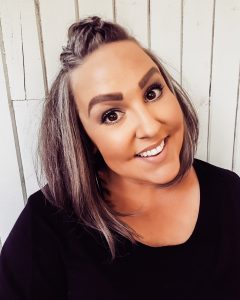 PIN IT
PIN IT
Rebekah shares how heartbroken she was by the recent stories that have come out in Kenya’s gospel music scene, “I think our gospel scene this year has taken such hard blows… and one my mom always used to tell us when we were kids, your sin will find you out. There is a grace that comes with confession that does not come with being busted. When you’re busted, you never really can tell if the person is genuinely sorry that they did it or if they are sorry because they got caught.” She continues, “I just feel the weight – I cried when I read those stories. You always think Satan is letting you get away with it – He never does. He is a long term investor and he may be planting something now that he knows he won’t even reap for twenty years. He’s just being very strategic in when and how this is going to come to the light.’ So that just keeps me in the fear of God.
Naked and not ashamed
Rebekah shared with us the hardest decision of faith she ever had to make, which for us is a powerful message to anyone in any walk of life, and we want to leave it as a parting thought: “To repent and be exposed – That’s the hardest decision I have ever had to make – choosing humility. To me, humility is ‘I was wrong and I’ve done something wrong’. Having to expose it to my husband and to my team, to my parents … To accept and allow that exposure has always been the hardest part of my faith. Because, I want to look good and I want to look like I’ve got it all together.
Allan and I have been very intentional to create a world in the social media space that’s honest and not presenting a ‘false reality’ … for me, the hardest is exposure and it’s the hardest decision I have to make and keep having to make.”
Photos of Rebekah Dawn Gituthu courtesy of Allan Sucre
Click to watch 'Tembea Nawe' by Rebekah Dawn Gituthu
Subscribe now for updates from Msingi Afrika Magazine!
Receive notifications about new issues, products and offers.
What's Your Reaction?
 PIN IT
PIN ITPassionate about getting God's message concerning Afrika and the end times to the world, in order to heal, restore and rebirth Afrika to her true purpose and destiny in God.









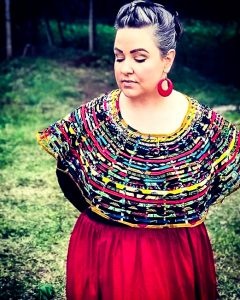








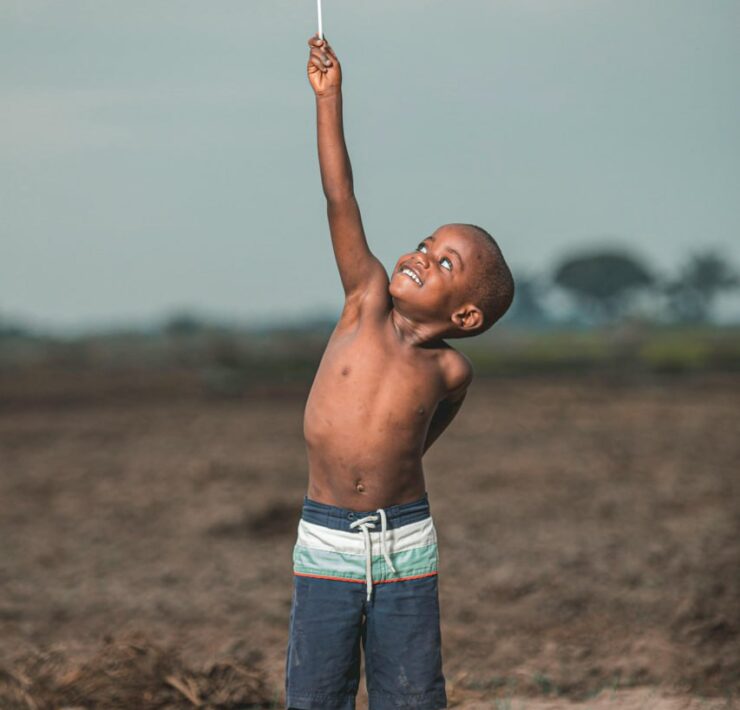
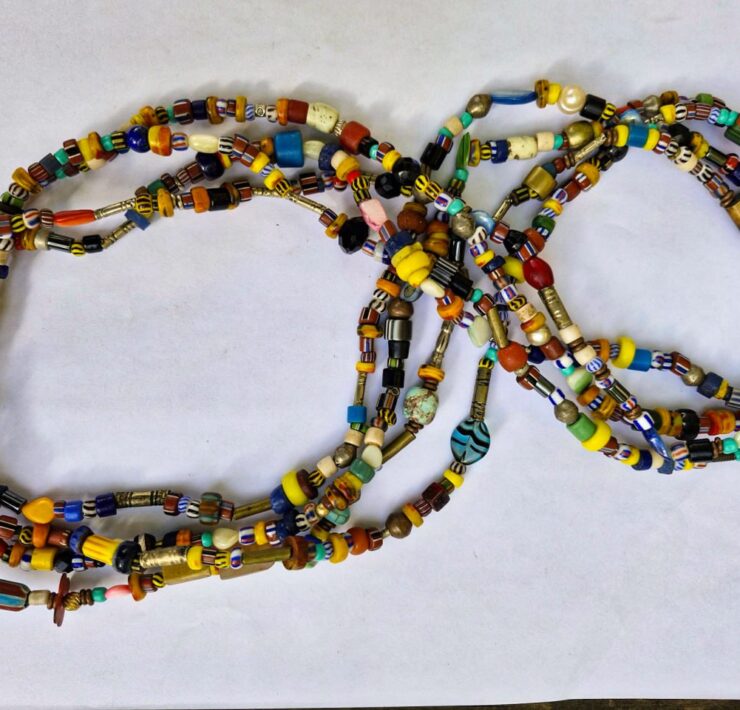


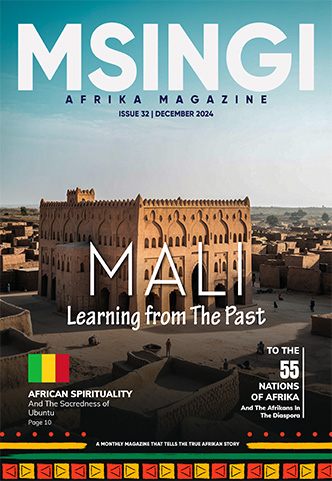
I love this story. It has challengesd me and rebuke me
Thank you Tim. What else should each of our lives produce for one another if not the grace to inspire, encourage, correct and adjust in alignment with God’s will along this journey that God has gifted us all with. God bless you as you contemplate what the Holy Spirit may be communicating to you right now, may He indeed spur your life to new heights in God. That your story too may become one that also pours into the lives of others as this has for.